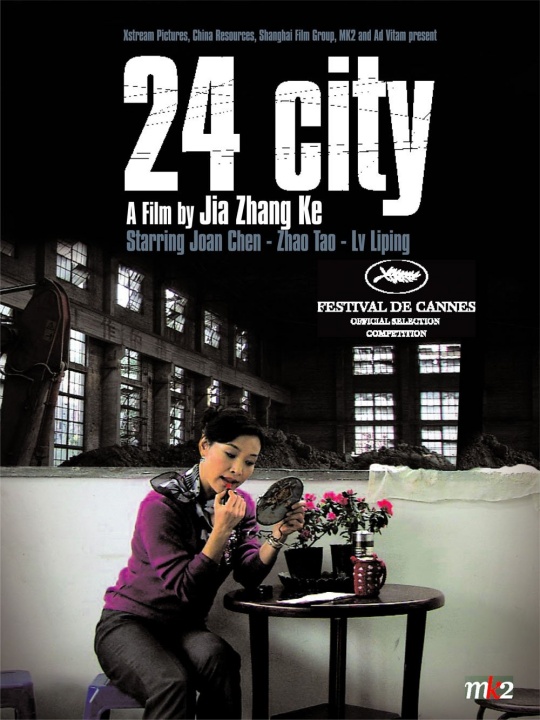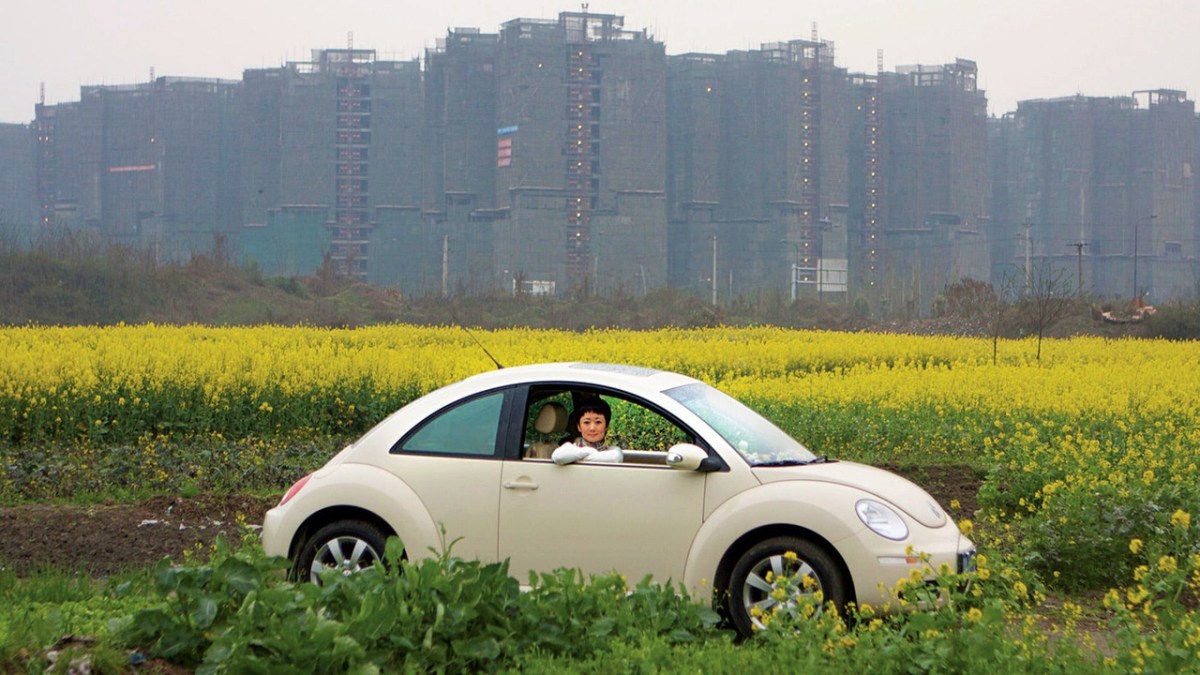There’s something very deeply moving and universal about Jia’s seemingly mundane documentary about the stories of workers (and their children) who used to ply their trade in a Chengdu factory that had made way for new commercial development as China rapidly modernised in the 2000s.

Review #2,141
Dir. Jia Zhangke
2008 | China | Documentary/Drama | 107 mins | 1.85:1 | Mandarin & Shanghainese
PG (passed clean)
Cast: Chen Jianbin, Joan Chen, Lu Liping, Zhao Tao
Plot: When a factory is being torn down in Chengdu, China, workers reflect on their experiences and the importance of the factory in their lives.
Awards: Nom. for Palme d’Or (Cannes)
International Sales: MK2
Accessibility Index
Subject Matter: Moderate – Modernisation, Memory
Narrative Style: Straightforward
Pace: Slow
Audience Type: General Arthouse
Viewed: MUBI
Spoilers: No
I remembered programming this film as a student more than a decade ago for the 2010 Perspectives Film Festival. It was also the first time I had heard of Jia Zhangke, though back then I didn’t really appreciate his importance to Chinese cinema.
Seeing 24 City again, hopefully now with fresher and more experienced eyes after forays into his other works, including Pickpocket (1998) and Still Life (2006), I find it to be an absolute gem.
There’s something special yet nondescript about Jia’s film, which is a documentary at heart but blessed as usual by the auteur’s fascinating docu-fictive approach.
Interviewing several subjects across different age ranges, whose commonality is that they or their parents had worked in the aeronautical Factory 420 in Chengdu decades ago, Jia also slyly stages a few stories with actresses such as Joan Chen and Zhao Tao playing interviewees.
“If you have something to do, you age more slowly.”
The thin line between fiction and reality is there for all to see, but Jia’s aim is always a humanist one—that is to unearth intimate narratives about family, work, survival, childhood, struggle, love lives, dreams and expectations, and set them against the canvas of China’s rapid ascent as a modernising economic power.
Factory 420 had since been torn down for commercial development, but these recounted stories, disparate and mundane they may appear to be to the naked eye, are deeply moving and universal.
The segment featuring Zhao Tao hit me in the gut as she reminisced about finally growing up after a rare visit back home made her realised that she now cared for her ageing parents. Likewise, I’ve been recently thinking about mine a lot as well.
Grade: A
Trailer:












[…] 24 City (2008) […]
LikeLike
[…] sum feels lesser than its parts in Jia Zhangke’s I Wish I Knew, which pales in comparison to 24 City (2008), its direct companion piece that explored recollections and personal stories of the past in […]
LikeLike